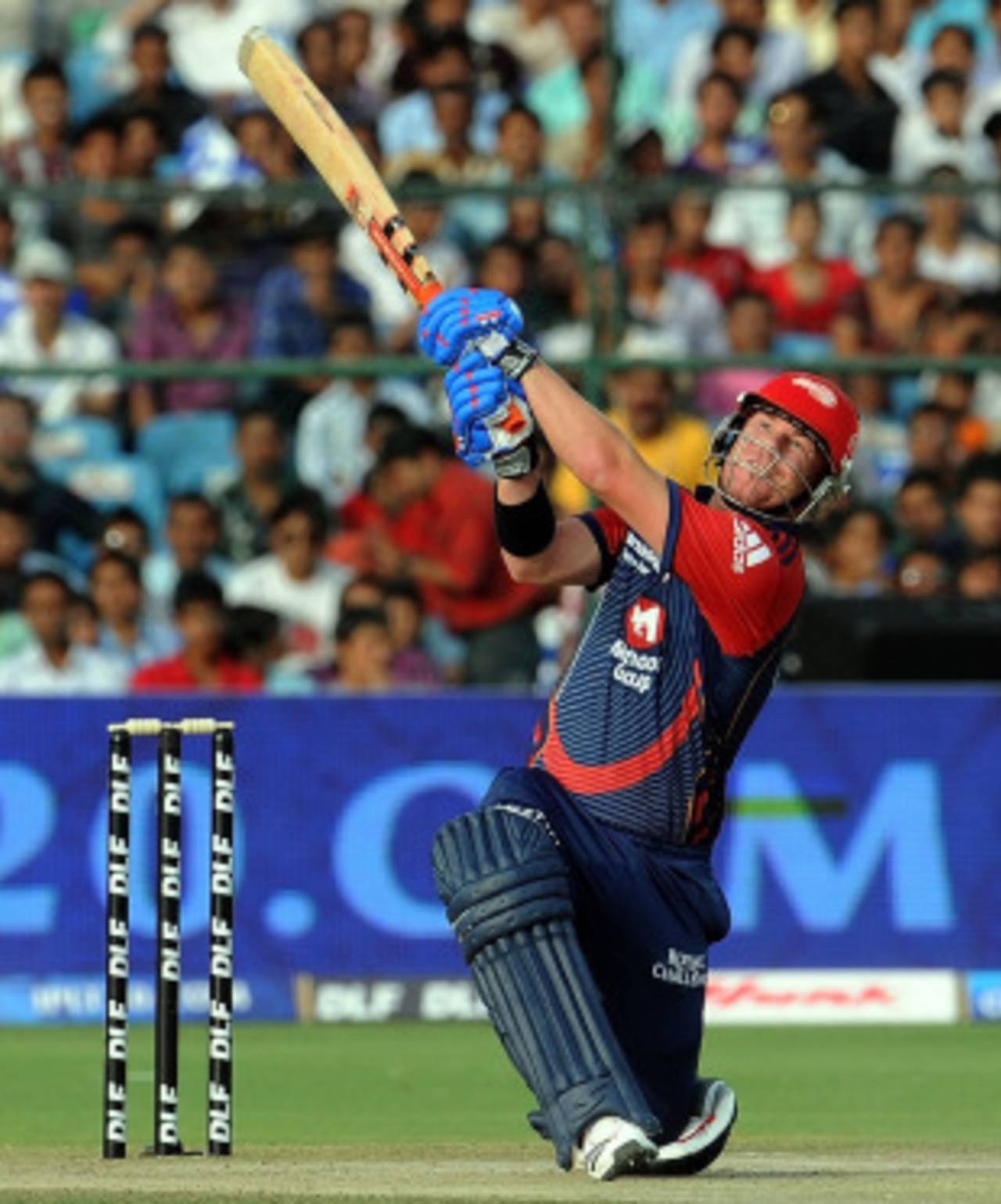Twenty20 hasn't peaked - McKenna
Mike McKenna, project owner of the Big Bash League, insists that Twenty20's popularity has not yet peaked,
Daniel Brettig
May 19, 2011, 9:05 AM

Dave Warner and other Twenty20 exponents like him will be expected to draw the fans in the first season of the BBL • AFP
Mike McKenna, project owner of the Big Bash League, insists that Twenty20's popularity has not yet peaked, despite a rising tide of evidence to the contrary.
A slackening of interest in this year's Indian Premier League, including television ratings in free-fall, suggests the format is no longer attracting new fans. So too does the fact that English cricket has been compelled to reduce the size of its sprawling domestic T20 competition for 2012, following a raft of poor attendances last summer.
Nonetheless, McKenna and Cricket Australia remain intent on pushing T20 as a bold new product during the inaugural BBL in 2011-12, as six state teams give way to eight manufactured city-based franchises sporting names such as the Sixers, the Thunder, the Renegades and the Scorchers. Seeking an additional revenue stream to ultimately rival that provided by the national team, CA and the states will suffer a significant hit if the T20 league does not capture the public mood.
McKenna is not shy about the fact the tournament has been closely modelled on the IPL experience, even though the differences between cricket's place in Australia and India are stark.
"I think we're a long way from the peak of this sort of competition around the world," McKenna said. "There are a lot of people still feeling the game out, what's the right way to play it, what's the right way to promote it, where to play games, what's the right number of teams.
"England had 18 teams playing 151 games, right at the back-end of the World Cup soccer, which was the primary interest for English fans. So who knows what a different structure will do for them, but there's no doubt there's an appetite for cricket, and particularly among young people and women the appetite for Twenty20 cricket is huge.
"So you put the right product on and promote it the right way, it'll be successful. But we want to make sure that other forms of the game have a place in that too. So domestic T20, international one-day cricket and Test cricket are the priorities for Australia, those three forms of the game ahead of everything else."
The simultaneous creation of eight new teams with no strong regional ties means the early seasons of the BBL will have to ride on waves of interest in the format itself and the players who take part. However the probable lack of many Australian and overseas stars, with the exception of West Indians such as Chris Gayle, may leave the teams without much of an initial selling point at all. McKenna argued the landscape allowed for new players to emerge as purely T20 identities, with internationals viewed merely as a bonus.
"One of the challenges we have is we've got a lot of big name players in Australia, but we really want to build another level of player that has the chance to engage with the public," he said. "At the moment we have 25 CA-contracted players, who are more often than not playing or on tour. What we want to introduce is another level of player who can really excite the fans.
"We've seen that with David Warner, who's not a Test player or a one-day player on a regular basis but can excite the fans. So if we can take those guys who are available into schools, shopping centres and where kids are, to clinics, it's a chance for us to really connect with the fans where we can't at the moment. The big-name players would be the icing on the cake for us."
Oddly given that each team has so far been counselled against allying itself too closely to a particular region or state - to the point that clubs were forbidden from using state colours - McKenna said each team had to mean something to its city in order to win genuine supporters and develop a club mentality.
"If you look at every club around Australia who are successful, they stand for something," he said. "Collingwood and Essendon football clubs, Wests Tigers, South Sydney, they've all got something that really appeals to their fanbase. For us that's the biggest thing we've got to create that meaningful connection with fans, and that's something we've been working on with all the teams for the past two months, what the team stands for."
Daniel Brettig is an assistant editor at ESPNcricinfo